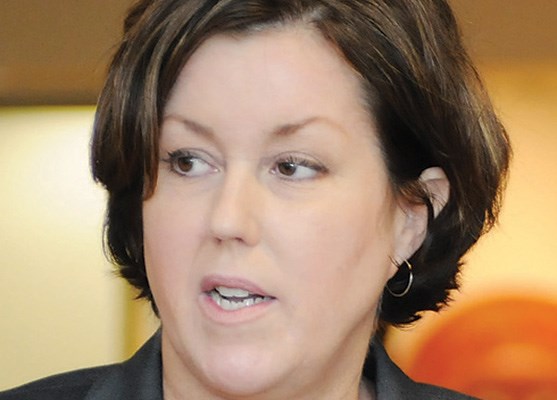VICTORIA — The B.C. government is hoping to designate summer school an essential service for high school students who have failed courses and need to work on their grades.
The province applied to the Labour Relations Board on Tuesday asking it to institute essential service levels and force striking teachers to teach remedial summer school courses for high school students.
“In our submission, failure to offer these programs will result in serious and immediate disruption to academically vulnerable students,” the government said in its submission.
The move pre-empted a decision by the B.C. Teachers’ Federation expected later this week on whether it would direct its striking teachers to picket summer schools, thereby shutting down any summer programs. Unionized teachers teach the summer courses.
Instead, the Labour Relations Board will have to rule on the issue, providing at least some certainty for school districts unsure whether tens of thousands of kids enrolled in summer school in July will have any teachers.
A shutdown of summer classes would hurt students in grades 10 to 12 who need credits to graduate or meet prerequisite requirements for the following school year, the government argued in its submission to the labour board.
The move does not apply to summer courses for elementary students, or courses that students did not fail but which they want to retake in order to upgrade their marks.
B.C. teachers went on full-scale strike June 17. The provincewide shutdown of school has all but ended the school year, but districts have been waiting for clarity on what it will mean for summer courses.
There was no immediate timeline on when the LRB might rule on the matter.
The government has also asked for five year-round elementary schools — in Richmond, Langley, Maple Ridge and the Cariboo-Chilcotin — to continue to operate at essential service levels. The government said it also wants teachers inside youth custody centres and adolescent treatment centres to resume educational work with at-risk youth, which stopped because of the strike on June 16.
There were 49,210 students enrolled in summer courses throughout B.C. in 2013, though not every school district offers summer classes.
B.C.’s two largest school districts, in Vancouver and Surrey, have yet to decide whether they will cancel summer school.
Vancouver school board chair Patti Bacchus said she’s concerned about the impact of the teachers’ strike on students who rely on remedial programs, and welcomed the government’s essential service application.
“I think it makes sense to prioritize remedial programs to ensure students who are already struggling are not disproportionately affected by the strike,” she said.
The Vancouver school district has been waiting for the BCTF to explain whether it would picket schools and how that would affect the more than 17,000 students enrolled in summer classes.
Bacchus said she believes the BCTF is looking at picketing options because union locals had inquired about what schools would be hosting summer classes.
The BCTF said Tuesday it has not made a decision about what will happen with summer school.
Before filing its essential service application, the government said it would end its partial teacher lockout to allow summer school to go ahead if the BCTF agreed to teach the courses.
“Any impact on summer school this year will be entirely due to the actions of the BCTF,” the Education Ministry said in a statement. “That would be unfortunate, for students, parents — and teachers. Interfering in summer school will not bring the parties any closer to reaching an agreement.”
Eight Vancouver elementary schools and 10 secondary schools are planned to host summer classes. Unionized teachers, on summer contracts with the district, teach the courses, said Bacchus.
Some students need to retake failed classes, or improve marks, to get enough credit to graduate, meet post-secondary entry requirements or advance a grade with their classmates. Summer school is generally free in B.C., though there may be a deposit or completion fee.
Vancouver’s summer program begins as early as July 2.
In Surrey, approximately 9,000 students take summer courses. The Surrey School District intends to “wait until the last possible minute” to make a decision, which could mean it would hold off cancelling classes until the end of the first week of July, said spokesman Doug Strachan.
“We need teachers to be able to provide summer school,” he said.
There could be a big impact on students if summer classes are cancelled, said Strachan, because many students chose their fall classes this month on the assumption they could pick up required credits this summer if necessary.
Also caught up in the uncertainty are international students, who pay between $620 to $1,300 per summer course in Vancouver. In Surrey, the international rate is $800 for a full credit, and in Victoria it is $750.
Many international students have already purchased airline tickets and paid for home stays, and if they arrive to find B.C.’s summer schools cancelled it will hurt the province’s reputation, said Bacchus.
“It’s an incredibly competitive market for international students all over the world and if we have students arriving here to find they have no classes that is going to do some harm to our ability in the future to attract students.”



